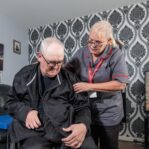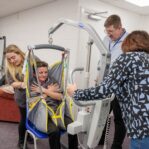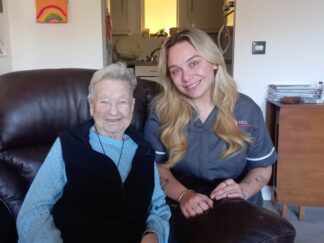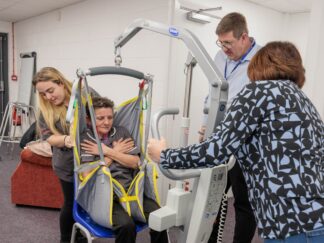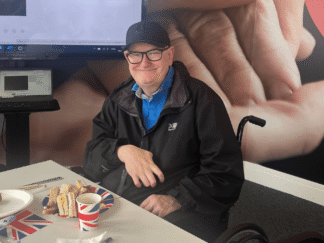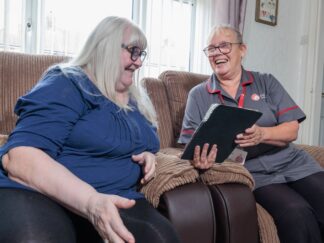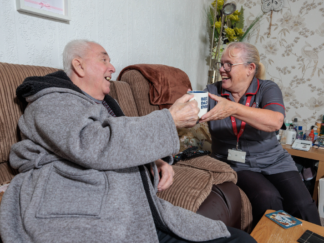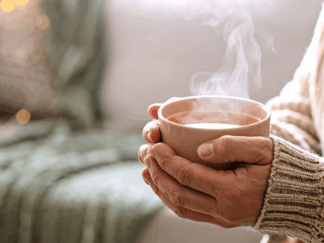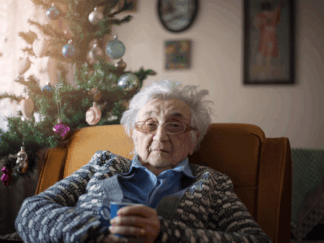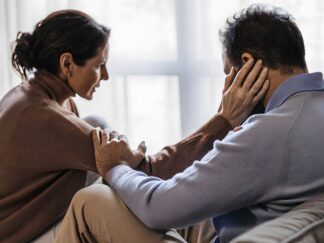
With summer coming to an end, and the colder months drawing in, we need to ensure that we are preparing ourselves and the most vulnerable for the colder temperatures this winter. As this summer seen record low temperatures, given the title of ‘the coldest summer since 2015’, we can expect to see even colder temperatures in the coming months.
So, how can you prepare for this winter? Whether you are a care assistant, or a looking after a vulnerable adult, it is important that precautions are taken in the lead up to the colder months. The cold weather can affect us all, but it is especially important to remember our elderly relatives, especially those 65 and older. Read on to find out how you can prepare for this winter.
Staying safe this winter
Prepare for power outages
Having a power outage at any time of the year isn’t ideal, but during winter, this can be detrimental to the vulnerable who have weakened immune systems, and may be more prone to colds and viruses during colder months. Some things you can do to prepare for power outages is: ensuring you have lots of layers and blankets you can wear to keep body heat in, having plenty of battery-operated torches in case of an outage during dark nights/mornings, ensuring doors and windows are closed at all times to keep in any heat, and having hot water bottles/flasks you can fill with hot water if you are given advance notice of a power cut.
It may also be essential to make a note of emergency contacts such as close friends or family members, as well as emergency services or local authorities should you need to contact them during a power outage.
Recognising signs of hypothermia
Whilst highly unlikely to occur, it is extremely important for caregivers and healthcare professionals to recognise the signs and symptoms of hypothermia. Hypothermia is categorised by an internal temperature of 35°C or lower – this results in extremely low temperatures, where the individual loses body heat faster than they are producing heat, resulting in an abnormally low internal body temperature.
If a vulnerable person is showing symptoms of hypothermia, this can be extremely dangerous and must be acted on as soon as possible.
Signs and symptoms of hypothermia include:
- Shivering
- Slurred speech or mumbling
- Slow, shallow breathing
- Weak pulse
- Clumsiness or lack of coordination
- Drowsiness or very low energy
- Confusion or memory loss
- Loss of consciousness
If you notice any of these signs in an individual (first sign will often be shivering, which is an automatic response to increase the internal body temperature), you must call 999. You must also remove any cold or wet clothing and replace this with warm, dry clothing to avoid the internal body temperature dropping even further.
Keeping warm outside
If yourself or a service user are leaving their home and going out in the community during colder months, it is important to wear lots of layers to ensure that any body heat is kept in as much as possible.
Examples of clothing you should be wearing outside in colder temperatures include:
- Thermal undergarments and socks
- Thick tops/vests
- Thick jumpers
- Winter coats
- Thick boots
- Hat, scarves and gloves
Icy surfaces
You should also be extra cautious in the event of extreme weather, particularly if it is raining or snowing, and the floor is icy. With vulnerable adults and the elderly more prone to breaking bones if they suffer from a bump or fall, it is important to take extra precautions during icy weather, or avoid leaving the house if necessary.
Some things you can do to stay safe walking on icy surfaces is; walking only in gritted or salted areas, wearing shoes with a strong grip, and walking along clear paths or driveways with little to no ice.
Further information
Do you or someone you know need extra support during these winter months? Get in contact today to enquire about the services that we offer by visiting our ‘Contact us’ page.
For more information regarding staying safe this winter, and protecting the most vulnerable, read the government guidance here.
Social Media
To keep up to date with important information about topics like these, please visit our ‘News’ page, or visit our socials by clicking the links below.
Liverpool
Cheshire
Our partners












